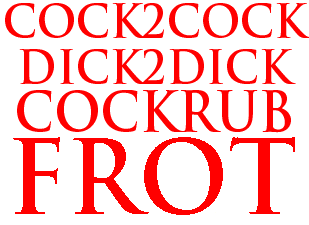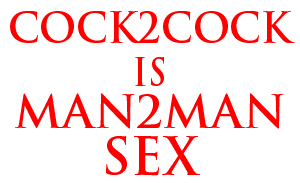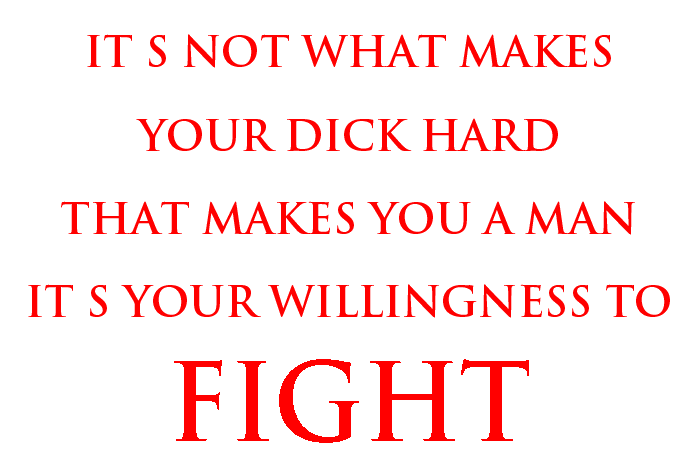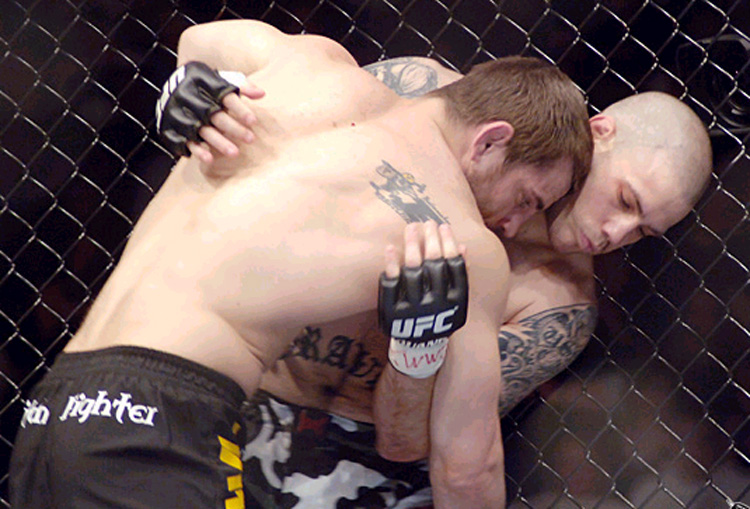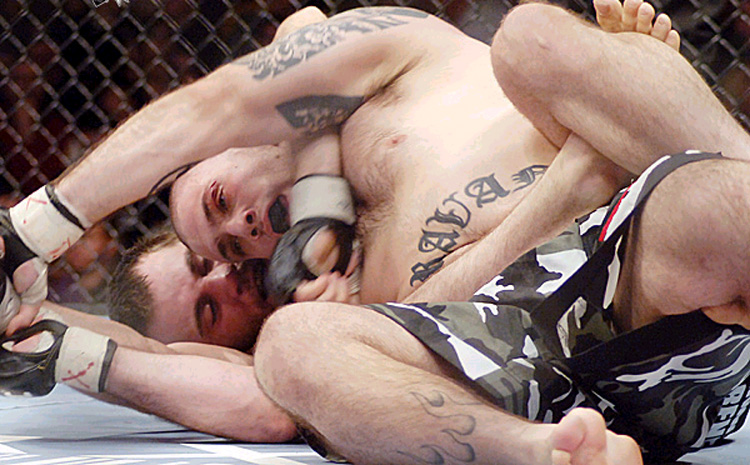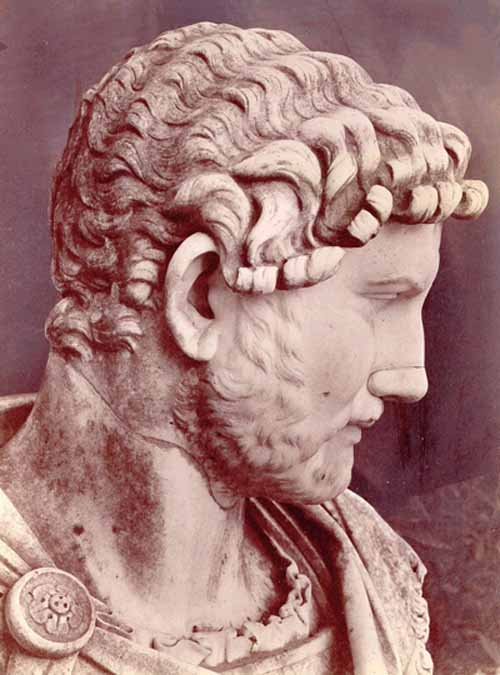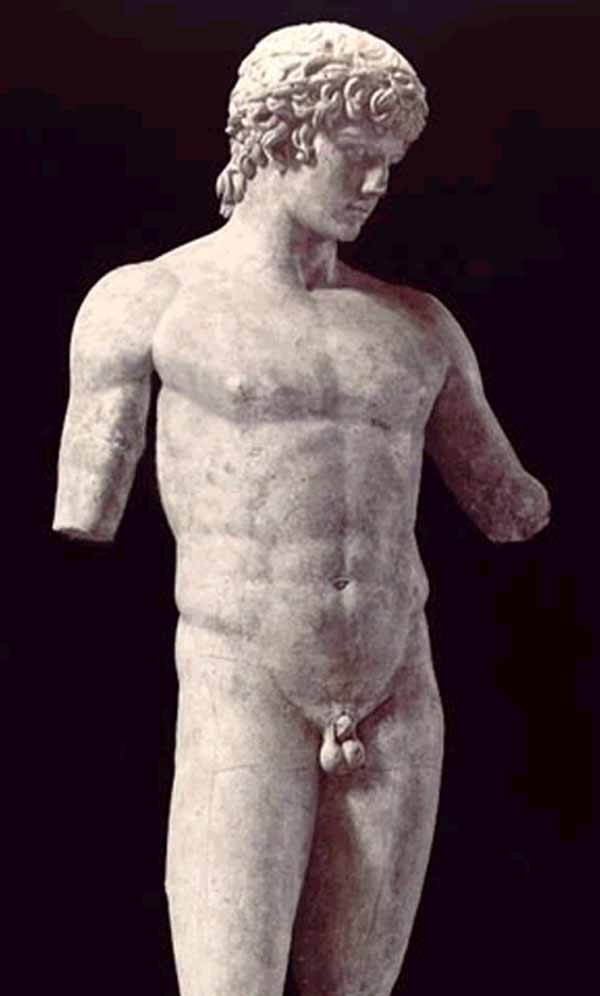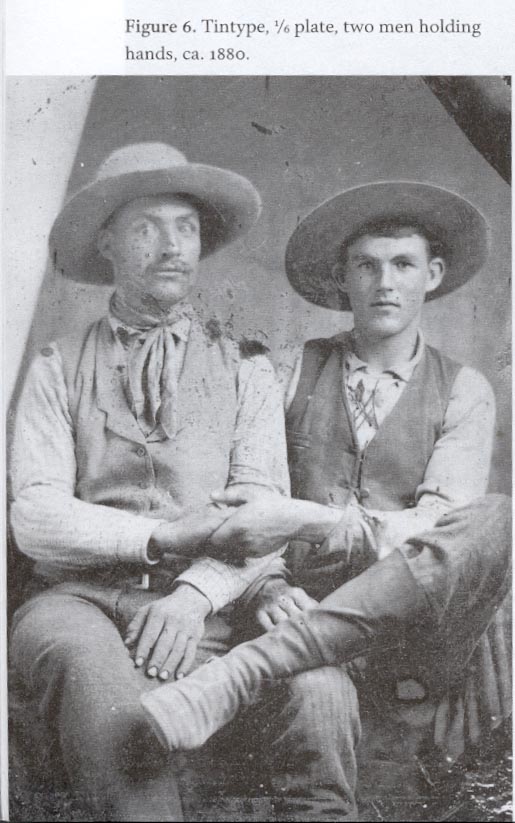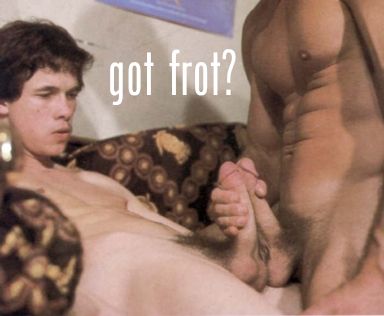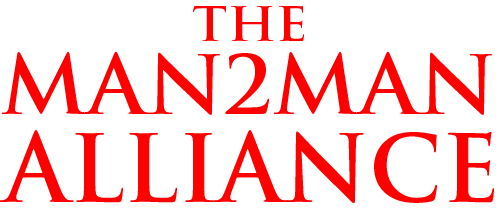





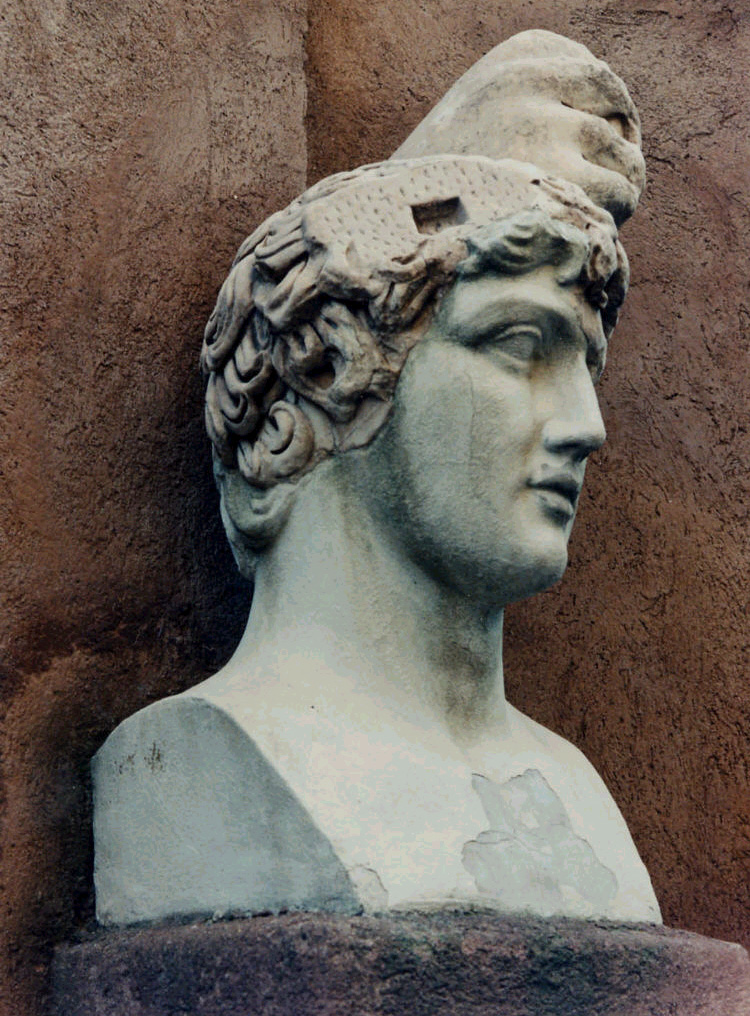
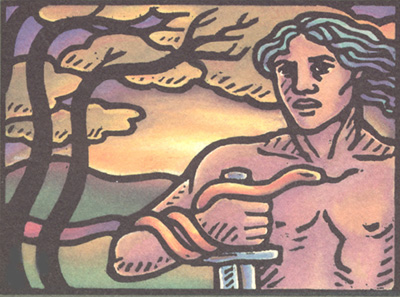


The Deification of Antinous
8-12-2007

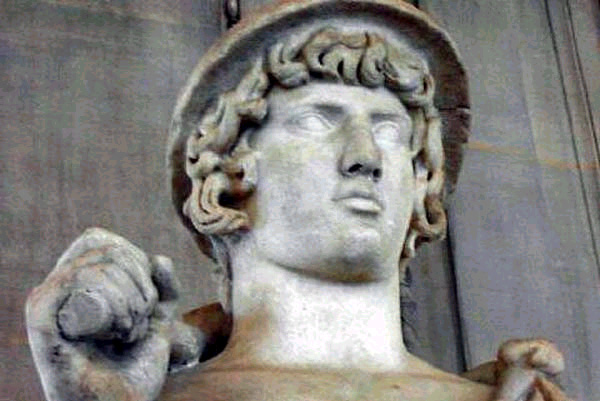


Recently one of our guys, who's used this site for years, wrote that he'd visited Rome:
in the vatican - yes the vatican - collection there was a beautiful sculpture of one emporers lover - antonius (sp?) - the emporer was married had kids and his young male lover - very much in the greek image - when he died, the young man was made a god - the only roman homosexual god i know of -
I groaned when I read that -- and I must say it was very dispiriting to read it --
first off because I'd posted in February twice -- in Statius and The Comradeship of Wounds -- and at some length about the Roman Emperor Hadrian and his lover Antinous:
Interestingly, Seven Against Thebes in the original Greek epic version, which so far as I can tell is no longer extant, was a favorite of the Roman Emperor Hadrian, who ruled from 117 to 138 AD.
Hadrian is generally considered one of the most exceptional people produced by Rome: in addition to arguably having been the best and most capable emperor, he had an extensive military career; he was a champion of Greek culture; a poet in his own right; a brilliant architect -- he gave the world the Pantheon; and he had a very ardent and very public relationship with a Greek youth -- Antinous.
So -- I groaned because it was clear this guy hadn't read either of those articles --
but which were written precisely and exactly to help guys like him;
and I also groaned because we've discussed over and over again that we cannot apply words like "homosexual" or "gay" to people who lived thousands of years ago.
And that to do so is to do great violence to their lives and to ours as well.
So:
Let's revisit the story of Hadrian and Antinous, and try to understand not just the bare facts -- that they were lovers, that Antinous died, that Hadrian had him deified, and that Antinous was then worshipped as a god;
but the why of those facts.
And in particular, why it was that Antinous' contemporaries would be so willing to worship this dead youth -- as a god.
In order to understand the why of that, we need to understand the process of mythic identification.
A process we first discussed in The Warrior Bond:
When we consider the impact of th[e Achilles and Patroclus] myth upon ancient men, and ask what effect it may have upon ourselves, we need to ponder whether, as Thomas Mann believed, "the Ego of antiquity was different from our own ... it received much from the past and by repeating it gave it presentness again. ... It was a mythical identification ... Life, or at any rate, significant life, was the reconstitution of the myth in flesh and blood; it referred to and appealed to the myth; only through it, through reference to the past, could it approve itself as genuine and significant."
Personally I don't agree with that part of Mann's observation which sets the ancients apart from ourselves, for in my own life myth is vital, and life without mythic referents feels empty.
And much of my life has been spent in the search for a hero, and in then living out heroic moments with him, as brutal as they sometimes were.
Indeed, I identify more with Achilles and Gilgamesh and Aristogeiton than I do with most of my contemporaries -- the behavior of these ancient, mythic heroes is instantly recognizable to me, their unwavering loyalty, their willingness to die for one another, and the extravagance of their grief when their beloved dies or is killed is unmistakeable to me, I recognize myself in them, and feel far closer to them than I do to the sickly denizens of mass gay culture.
So I don't agree with Mann that mythic identification was restricted to antiquity -- if I did, I wouldn't be writing Heroic Homosex.
But there's no question that Mann is right about the ancients, that to them "significant life was the reconstitution of the myth in flesh and blood" -- that, for example, when Alexander the Great and his lover Hephaestion ran naked round the putative tombs of Achilles and Patroclus at Troy, it wasn't, as some moderns think, a PR stunt. Not at all -- it was an expression of Alexander's mythic identification with Achilles, from whom he believed he was descended, and a tremendous, really breath-taking, heart-stopping affirmation of what he felt towards Hephaestion.
I too felt that when I wrestled and cock-humped with my lover Brett, or when we stood shoulder to shoulder at Jones Beach, sticks in hand, to face down a gang of fag-bashers, or when, walking through the East Village I slipped on some brass knuckles and he toughened his gait and armed himself with a set of keys protruding through his fist so we could walk safely and not too fast past another bunch of haters.
At such moments I remembered what Enkidu had said to Gilgamesh -- "Two people, companions, they can prevail!" -- and understood that it was true.
Just as I did when Brett and I battled -- as had Gilgamesh and Enkidu -- our ultimate enemy, a deadly disease, and I had to face, just as did Gilgamesh, the mortality of my hero.
So while I agree with Mann about the ancients, I also know that for me that reconstitution he speaks of is vital as well -- as I think it is for all people.
So -- here's the core sentence in that excerpt:
there's no question that Mann is right about the ancients, that to them "significant life was the reconstitution of the myth in flesh and blood"
And again, I would say it still is:
So: the significant or meaningful life reconstitutes myth in one's own flesh and blood.
How did that play out for Hadrian and Antinous?
The answer can be found in this Greco-Roman sculptural group of Castor and Pollux:
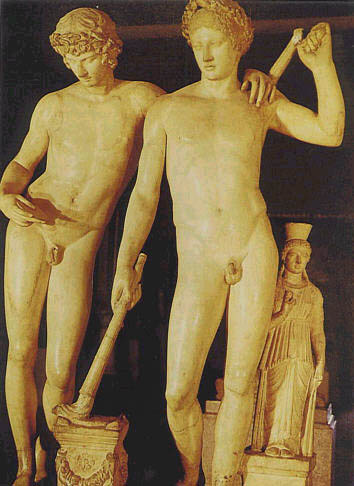
Who were Castor and Pollux?
They were mythic Greek -- actually Spartan -- heroes and brothers.
Their mother was named Leda.
But they had different fathers.
Castor's father was a Spartan king named Tyndareus.
But on the same night that Tyndareus lay with Leda and got her pregnant with Castor, Zeus came to Leda in the form of a swan and impregnated her with another son.
Whom the Greeks called Polydeuces and the Romans Pollux.
These boys were carried to term together and thought of themselves as fraternal twins.
They were enormously devoted to each other, and their mutual devotion was a powerful model for other Men.
After many adventures, the two were killed during a cattle raid.
As Pollux lay dying, Zeus came to him and said, Because you're my son, I'll make you immortal.
Pollux asked, What about Castor?
Zeus responded, He's mortal and must remain so.
To which Pollux replied, If Castor cannot be in Heaven, I won't go there either.
So: Pollux rejected immortality for the sake of his brother.
That's true and manly devotion.
Faced with Pollux's determination not to be separated from his brother, Zeus, eventually, relented, and made Castor immortal too.
They became gods, known as the Dioscuri or Sons of God, and very popular gods too.
So much so that an oath, "By the twin gods!" was one of the most common in Greece and Rome.
Now -- what's that have to do with Hadrian and Antinous?
It's not complicated -- at least not if you're an ancient man for whom mythic identification is a part of life.
Because just as Alexander the Great -- a "real" person -- identified with the "mythical" hero Achilles;
so did Hadrian identify with the mythical hero Pollux.
Why?
Because Hadrian, like every Roman emperor, knew that when he died he would be deified.
If Antinous were not deified, then Hadrian and Antinous would be forever separated in the hereafter.
But -- if Antinous, like Castor, were deified after death, he and Hadrian could spend Eternity on the same celestial plane.
Together Forever.
That's what Hadrian wanted.
Now -- one website -- and I'm sorry, I don't remember which one -- claims that in this sculptural group of Castor and Pollux, Hadrian has had Castor's head removed and has replaced it with that of Antinous.

Castor and Pollux
Castor is on the left
I don't know whether that's true or not.
I've only seen this group in this photograph.
If I could see it in person, I'd know right away, because we have a great many portrait busts and full-size statues of Antinous, and the features of his face are distinctive and well-known.
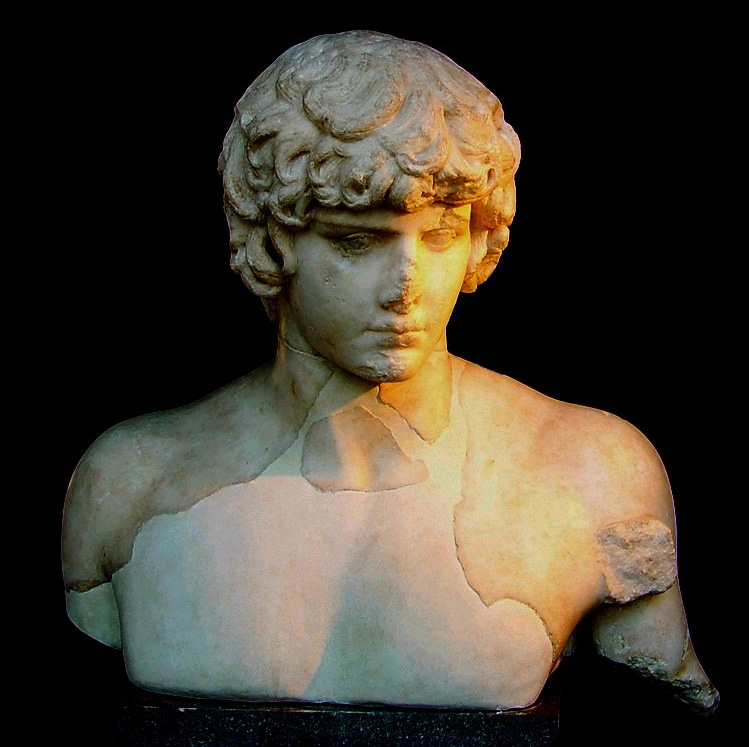
But it doesn't matter, because in this case it really is the thought that counts.
And clearly, when Hadrian decided to ask the Senate to deify Antinous, he was thinking of Castor and Pollux and making a clear statement both of mythic identification and of devoted love which would have been instantly recognizable to his fellow citizens.
Which is why Antinous was worshipped.
Not because he was "homosexual."
The word didn't exist, the concept didn't exist, and the idea that a youth like Antinous who had a male lover as a young man would grow up to be "gay" or "a homosexual" was utterly foreign not just to the thinking of ancient peoples, but to their experience.
For example, about two hundred years before Hadrian and Antinous met, Julius Caesar had, just coincidentally, been a youthful hostage at the court of the King of Bithynia -- the same Greek kingdom from which Antinous came.
And it was rumored that while there Caesar had been the lover of the Greek king.
Is that true?
No one knows.
But no contemporary of Caesar's would have assumed that because Caesar had been a king's -- or any other male's -- lover when a youth, he would grow up to be "homosexual."
That just wasn't the way they thought.
Nor did they think that a man who had sex with another man was "homosexual."
They did not extract a label from a sex act.
We do that.
They didn't.
Remember what the Roman poet Ovid says, as we quote him in The MIngling of Their Bones, when speaking of two sixteen-year-olds, Athis and Lycabas, who die in battle against Perseus:
There was a youngster there, Athis, from India,
Whose mother was a river-nymph, Limnaee,
And he was beautiful, with beauty doubled
By the rich robes he wore, the purple mantle
With fringe of gold, and a golden chain adorning
His throat, and a golden circlet holding in
His hair, perfumed with myrrh. At sixteen years
He threw the javelin well, and bent the bow
With even greater skill, and would have bent it
Once more, but Perseus, snatching from the altar
A smoldering brand, used it for club and battered
His face to splintered bones.And this was seen
By Lycabas, who loved him, very dearly,
As one boy loves another, and who wept
For Athis, gasping out his life, his features
Fouled in his lifeblood, and he seized the bow
Which Athis once had bent. "You have me to fight,"
He cried, "It will not be long, the cheap rejoicing
In having killed this boy: all that you gain
Is hate, not praise!" As the last words were spoken
The arrow was on its way, but missed, and fastened harmless
In Perseus' robe, and Perseus turned, and swung
The scimitar that once had slain the Gorgon
And now slew Lycabas, who, in the darkness
That swam before his eyes, looked once around
For Athis, and once more lay down beside him
And took this comfort to the world of shadows
That in their death the two were not divided.~ Metamorphoses V, translated by Rolfe Humphries
Ovid doesn't say these were "gay kids."
Rather, he presents them as Warriors, which is what they were, who loved each other,
very dearly,
As one boy loves another
So he takes it for granted that men will love each other.
And he emphasizes their mutual devotion, and the fact that as they died,
[they] took this comfort to the world of shadows
That in their death the two were not divided.
So, and once again as we see, that idea -- that in their death a male-male couple were not divided -- is a very powerful one for the ancients.
And I repeat, because it's important to emphasize, that the ancients did not extract a label from a sex act.
We do that.
They didn't.
To them what mattered was Masculinity, and of course Fighting Spirit which is a major part of Masculine Valour -- VIRTUS.
Which we've discussed a lot, most recently and most especially in his valour plain to see.
And please read his valour plain to see if you haven't already.
It's a core article for the Alliance.
So: Antinous was not a "homosexual" god.
He was a god of manly and masculine mutual devotion.
And that's why he was worshipped.
Because of the Fidelity which he'd shown Hadrian and which Hadrian had in turn shown him.
And make no mistake about the value and meaning of what Hadrian did.
The Taj Mahal is often put forward as the architectural epitome of heterosexual love.
But Hadrian had constructed -- and perhaps designed himself -- temples to Antinous all over the Empire.
Not just one Taj Mahal.
But hundreds.
They were everywhere.
That's why we have so many surviving images of Antinous.
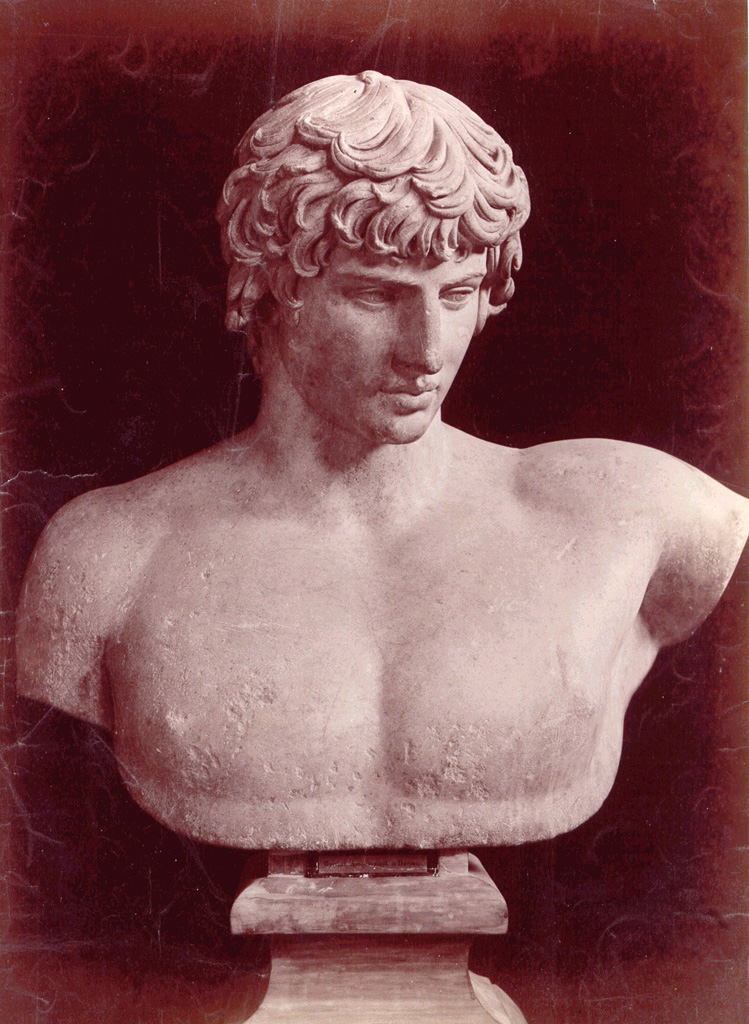

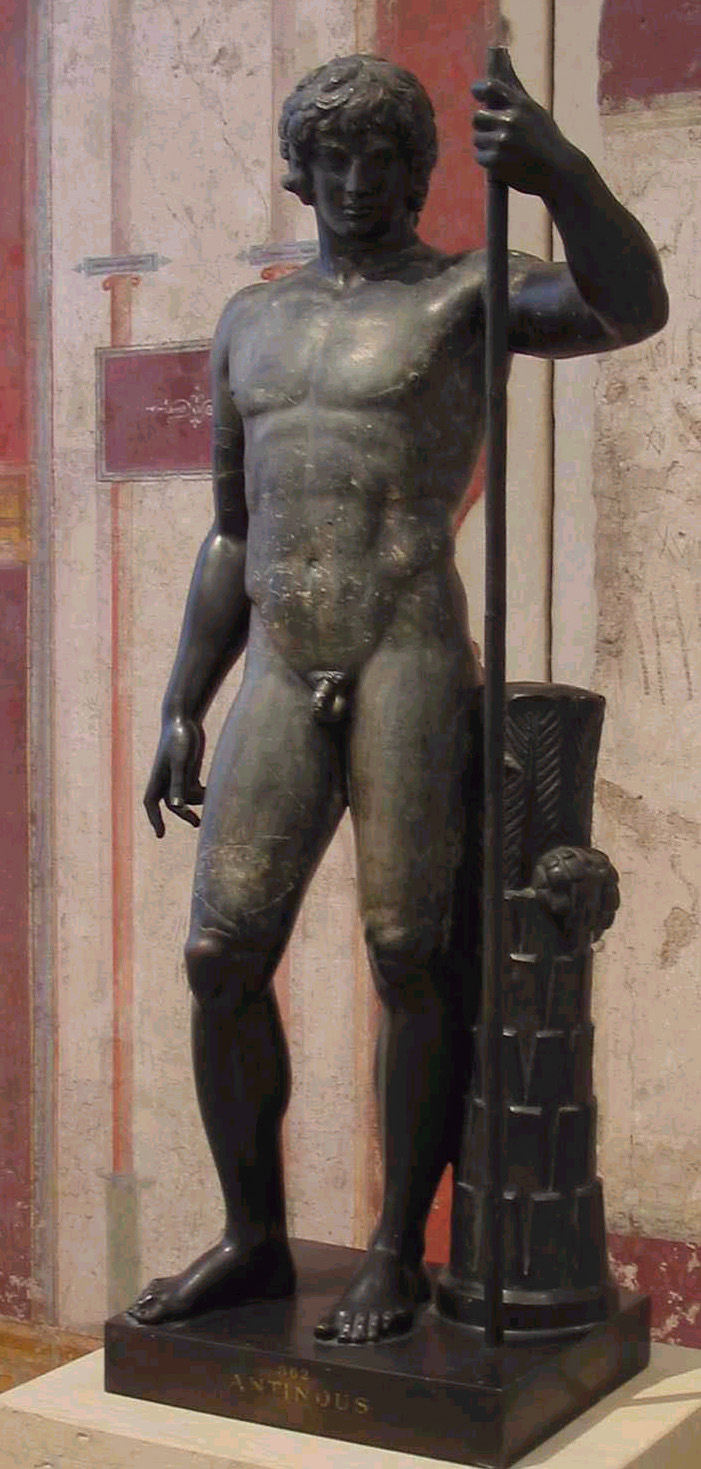
Hadrian did for Antinous what Alexander the Great had died too soon to do for Hephaestion.
He immortalized his lover through physical memorials.
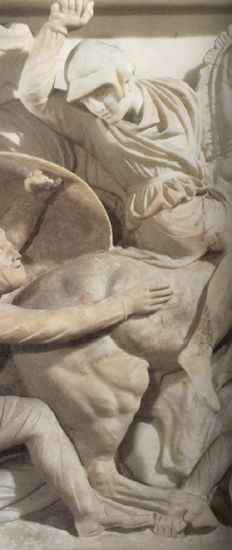
|
the only known portrait |
Alexander had planned to do that.
But he died just four months after the man who'd been without question his soulmate.
And his survivors instantly fell not just to quarreling but to open warfare among themselves over the remains of his empire.
Which is why only *one* image of Hephaestion exists -- and no one's really sure that it is Hephaestion.
But we think it is because it was commissioned by the King of Tyre -- who was greatly in Alexander's -- and Hephaestion's --debt; and who was determined that they be remembered.
But Hadrian succeeded beyond imagining.
If you visit this Virtual Museum: Antinous Portraits, you'll be blown away by the number of images -- many of them cult statues -- which survive.
And again, these are just the surviving images.
By 215 AD, or the year 968 after the founding of Rome, the cult of Antinous had spread to every corner of the Empire.
That's impressive.
But it spread as widely as it did because it was based on the Castor and Pollux myth, which of course preceded it.
And because it observed and celebrated something which is fundamental to Men and to Male-Male relationships:
Fidelity and Mutual Devotion.
That Devotion is Natural to Men.
Because it's part of the Warrior Bond -- which is an expression of Warrior Altruism.
Which means it's biological.
The playing out of a Male instinct.
The categories of "homosexuality" and "sexual orientation," by contrast, are not biological.
They are societal constructs, and of a particular kind of society -- a heterosexualized society which is determined to ghettoize male-male affection and sex.
The Greeks, and to a large degree the Romans, lacked those societal constructs.
Which is why the Roman Senate acquiesced in the deification of Antinous.
Hadrian wasn't a tyrant -- he wasn't a Nero or Caligula or even a Tiberius.
Hadrian was a leader.
And among other things, he led the Roman world into a far greater acceptance of Greek culture.
Though the Romans had long admired the Greeks, they'd also belittled them as a conquered people.
Hadrian got rid of that, and made acceptable an unabashed admiration of the Greeks and of Greek ways.
And there's something else.
It was said that Hadrian and Antinous shared a deep interest in the occult.
When we hear the word occult, we think of ouija boards and table-tapping mediums.
But to Hadrian and Antinous, the occult would have been the mysteries -- the mysteries of life and death revealed only by the mystery religions.
Mystery religions such as Mithraism, which emphasized, as we discussed in the Haggard message thread, manly devotion and male fellowship:
Mithraism was emphatically a soldier religion: Mithra, its hero, was especially a divinity of fidelity, manliness, and bravery; ... stress[ing] ... good fellowship and brotherliness ...
This is a tondo found in the ruins of Antinopolis, the city founded by Hadrian at the place on the Nile where Antinous died:
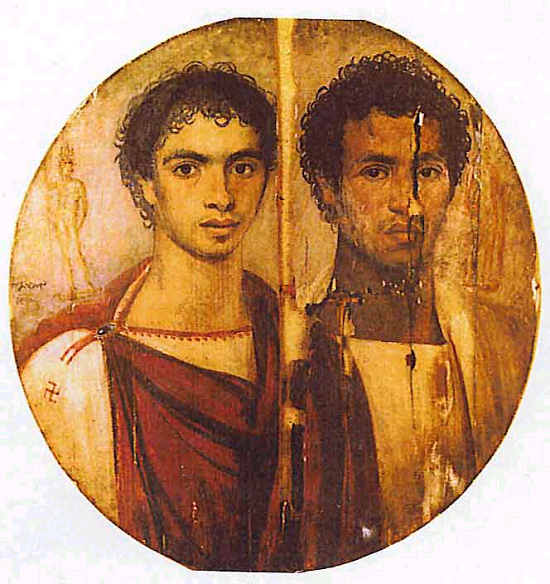
Some scholars think these men were brothers.
Others think they were lovers.
Does it matter?
Notice the figure standing to the viewer's left.

We've seen such figures before -- on Warrior amulets.
In this case, the figure may be a cult statue of Antinous.
In which case this is a portrait of followers of the Antinous cult.
The Deified Antinous.
Once again -- Does it matter whether these Men were lovers -- or brothers?
No.
The language of male-male love is the language of brotherhood.
The language of brotherhood is the language of male-male love.
Warrior-brothers we say.
Cymbrogi -- brothers of the heart.
Brothers.
The men in the tondo, whether brothers or lovers, were living in the tradition of Castor and Pollox.
The Dioscuri.
The Twin Gods.
The Sons of God.
All Warrior Brothers are the Sons of God.
That's the mystery behind the deification of Antinous.
That's the reality of Mythic Identification.
Like Castor and Pollux -- Achilles and Patroclus -- Alexander and Hephaestion -- Hadrian and Antinous -- you can experience that mystery and live that reality.
If you choose.
It's a choice.
And the choice is yours.
The choice has always been yours.
Always.

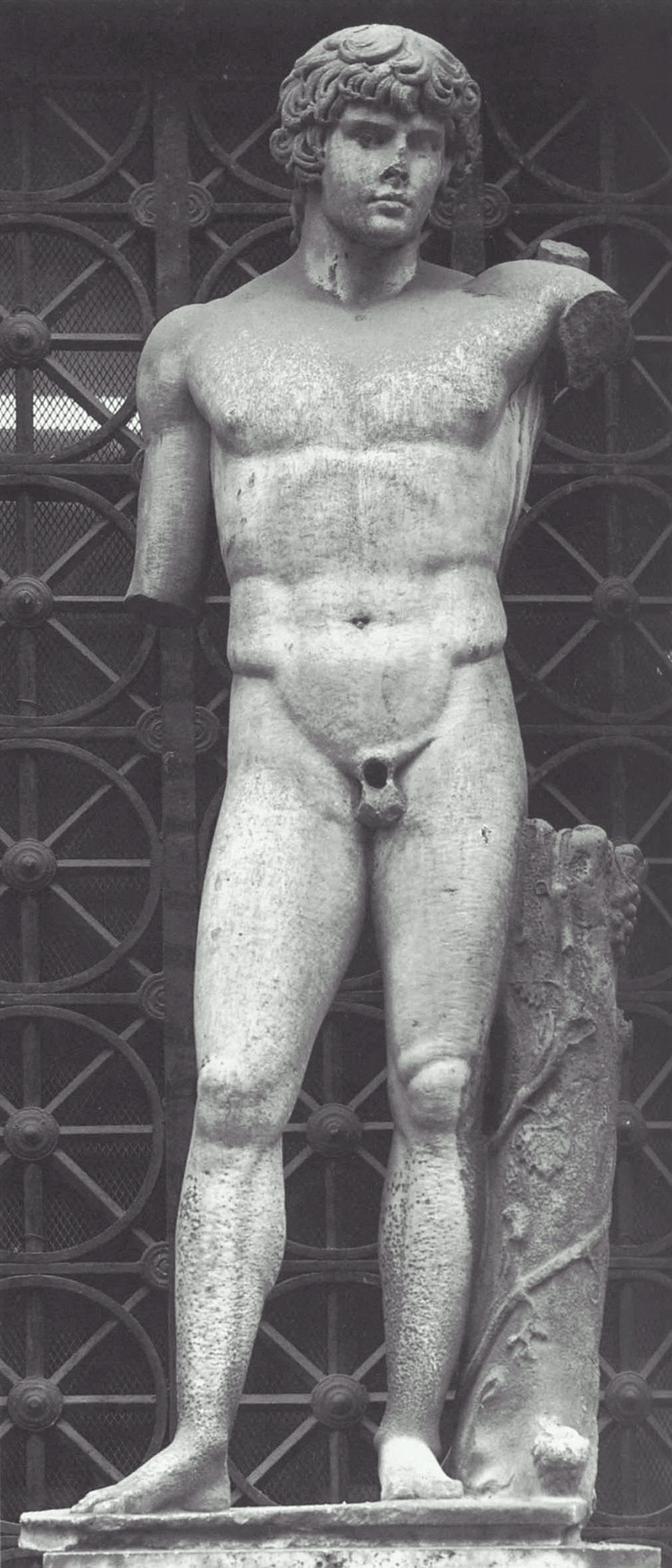


What stops you from making that choice?
Well, the same guy who wrote in about seeing the statue of Antinous at the Vatican, said this:
masculine phallic love is sacred - and we have been denied knowledge of this for generations - too many of us -gay straight bi whatever - find our way in life to sites like this which validate our needs and natural - natural - inclinations. I am married - i love my family my wife and our life together - i also know that there has been a very big hole in my life until i started getting past the shame and fear of being attracted to men and dealing with it - so so surprised to find the volume of married and "straight" men in chats, b boards and other sites that felt the same way - well here we are, knowing that our cocks belong together and having to figure out how to make it work.
So:
We see first off that this man has had to struggle to get "past the shame and fear of being attracted to men and dealing with it"
He then says, "so so surprised to find the volume of married and "straight" men in chats, b boards and other sites that felt the same way"
Now -- why was he surprised?
Because this bit of information -- that MEN aren't gay or straight, but are simply MEN -- has been kept from him most of his life.
Instead, he was taught the false categories of sexual orientation.
And he learned the heterosexist rule that "real men" don't cross the line dividing those categories.
That if they do, they cease being "real men" -- that is, "straight" -- and become "gay."
And it's not surprising that he believes that -- given how often people in both the "straight" and "gay" camps put it forth.
However -- and this I must say -- having figured out, I hope, that he's been LIED TO about "sexual orientation" -- which does not exist -- he still doesn't seem able to me to figure out that he's been lied to about something else.
And that is the role of hetero marriage in his life.
He says,
"I am married - i love my family my wife and our life together - i also know that there has been a very big hole in my life until i started getting past the shame and fear of being attracted to men and dealing with it"
That's all well and good.
But -- you'll notice that he feels constrained to put his family first.
He's not unusual in that.
As we just discussed in To see masculinity and masculine love as sacred, most married guys who share his inclinations -- which is to say ALL married guys -- would do the same.
But there's a problem there.
Because basically what he's doing is saying his marriage comes first, and then he NEEDS to have sex with guys -- cock2cock sex -- on the side.
And in the case of this man, he's relatively promiscuous.
I'm sure he'd say that he just hasn't found the right man yet.
But he talks about the need to "to bond sexually phallically to our brothers."
That's a fallacy.
You only need to bond to ONE brother.
Not many.
And that's what's missing in our contemporary understanding of male-male love.
To the ancients, the Love of Man for Man was nobler and higher than the Love of Man for Woman.
We need not necessarily return to that view.
But we need to understand it and understand what it means.
That the Love of Man for Man is NEVER second best.
So when this man says
"I am married - i love my family my wife and our life together - i also know that there has been a very big hole in my life until i started getting past the shame and fear of being attracted to men and dealing with it"
I would respond that the "very big hole in his life" will remain until he experiences not sex with men, but the True Love of one Man.
A Love which he reciprocates and lives to the full.
Two things here:
First off -- I understand this man's problem.
He loves his wife and doesn't want to leave his wife.
But what I'm trying to tell him is that his problem is cultural.
It's an artifact of cultural constructs which have arisen out of heterosexualization.
Which means that, in a sense, his problem isn't real.
Because it's a problem of ideas.
So, unlike having XDR TB, or HIV, let's say, or facing bankruptcy and foreclosure -- this is a thought problem.
That is to say, it's a problem which arises out of erroneous but much propagated ideas about the meaning of the Love of Man for Man.
And what Robert Loring has said about these sorts of ideas is:
Change the thinking; change the behavior.
So: if this man can begin to think differently about the role of hetero marriage and the potential role of the True Love of Man for Man in his life -- maybe he can begin to see a solution.
And I want to be clear: I don't want to beat up on this guy.
But I want him and all of you -- regardless of how you self-identify -- to see that the cultural assumptions which most of you share about the validity of Man2Man Love are doing you tremendous damage.
Which is why I get impatient when I see that a guy is visiting the site but not reading the articles -- as he apparently had not.
These articles, into which I put enormous amounts of time, thought, and energy, are there to help you.
But if you don't read them -- you can't and won't be helped.
And that's particularly true of the articles about the ancient world.
Which I know that many guys skip because they think they're irrelevant; or have poetry; or too many fancy words.
One of those guys was Naked Wrestler; who said to me, Those articles are just too complicated for ordinary guys to understand.
And I said, Yeah, but you need to stick with them, and try to figure them out.
And to his very great credit, he did, and sure enough while he was reading his valour plain to see, he had an epiphany -- a revelation -- a light bulb went off in his head -- and he GOT IT!
And he posted about it in the valour message thread, and the next day he wrote --
Which is not only a terrific article, but which integrated -- brought together -- his understanding of fight sport with what we'd been saying about the ancient world.
So: those ancient MEN are your friends.
They're reaching out to you across time and space to try to help you.
They want to do it.
Let em.
That's first off.
Second off -- early on, when the first straight-identified guys started coming to the site, I referred to one of them as bi, and he replied, "I'm not bi, my relational life is with women; but I like to rub cocks with a bud every now and then."
And at the time, I thought that was okay, and certainly that there was no point to arguing over labels -- which I still think -- and I was tolerant of it.
But, as we got deeper into this, and as I did more and more reading in the historical record, that attitude has come to seem to me to be a cop-out, which sells short both the individual man and all Men.
Because again, historically, Men Loved Men, and didn't qualify that Love.
So why should we do that today?
That makes no sense.
Here's something interesting about the Castor and Pollux story.
On the same night that Castor and Pollux were conceived, so were two daughters.
One was Helen.
She was Pollux's sister, and so she too was immortal.
The other was Clytemnestra.
She was Castor's sister, and she therefore was mortal.
Both Helen and Clytemnestra were UNfaithful to their husbands.
Helen, who was married to Menelaus, ran off with Paris and caused the Trojan War.
Clytemnestra was married to Agamemnon.
She too was unfaithful, and she and her male lover murdered Agamemnon when he returned from Troy.
So -- in this myth we have two Warrior brothers who are Faithful unto Death;
And two sisters who are unfaithful.
Now -- please be clear.
The Greeks did not view all women as unfaithful.
They told many stories of Fidelity on the part of women and wives, including Fidelity unto Death.
But in the story of Leda and her children -- Castor and Pollux and Helen and Clytemnestra -- there's a clear contrast between the behavior of the males -- which is Faithful -- and the females -- which is unfaithful.
Our culture has turned those values on their head.
Women are thought of as faithful.
While Men are assumed to be incapable of Fidelity.
And that's particularly true of Men who Love other Men.
To us, male-male relationships are most often about lust.
About sexual "needs."
NO.
After Antinous died, Hadrian retired to his villa at Tivoli.
There's no record of him having other sexual partners.
He lived for eight years in relative seclusion -- and then he died.
To some of you that may sound right.
To others it may sound grim.
But it was an expession of the ethos of his age.
Hadrian had a wife, Sabina, and arguably, she was important to him.
But his relationship with Antinous was in an entirely separate sphere of his life.
And of course he would have felt no need to justify his desire for Antinous or his love of Antinous.
So what has happened is that Male-Male Love, once the noblest form of love, is now the most denigrated.
And that's a huge part of the problem, and it's a cultural problem.
That's why this site and this Alliance exist:
To correct that cultural problem.
And to restore the pure and natural Love of Man for Man to its rightful place in the catalog of human devotion.
In our most recent discussion of HIV predators, I said that only the WARRIOR can stop the predator.
And that only the Warrior ethos -- an ethos of austerity, affiliation, and aggression -- can stop the culture of predation and promiscuity.
And I added:
Heroic Love -- the Love of Man for Man and Warrior for Warrior -- is the strongest and purest in the world.
So far as I can tell, every human culture -- except our own -- has recognized that fact.
Mankind's salvation lies in and only in the return to the WARRIOR values of Phallus Fidelity and Masculinity -- as expressed in the HEROIC LOVE OF MAN FOR MAN.
One of the male's primary life tasks -- is to have that Heroic Love in his life.
Without it, the male never becomes the MAN he was born to be.
HEROIC LOVE is yours by right of birth.
Don't run from it.
Seek it, seize it, treasure it.
In To see masculinity and masculine love as sacred, Redd spoke of men today following "heterosexism's script":
[Men] have been given a social identity that differs and contradicts their masculinity. Because their social identity condemns their real masculinity, they "act" heterosexism's script, while thinking and perhaps secretly doing something that expresses their real masculinity.
So the "social identity" which Men in our society are given -- and which I've referred to as pseudo-masculinity -- condemns Men's real or Natural Masculinity.
In that condemned and constricted state, these contemporary men are constrained to "act heterosexism's script."
That script is dictated by our culture.
And in following that script, the best most men can do, as I've seen time and again with our straight-identified guys, is maybe have what is de facto furtive sex with another man -- sex -- not love -- on the side.
While keeping wife and family front and center.
That simply was not true for ancient Men.
The Greco-Roman culture of Hadrian's day was not perfect.
But clearly Hadrian did not feel constrained to "act heterosexism's script."
He was FREE to LOVE a MAN.
And not because he was the emperor.
But because he was a Man.
And because his culture LACKED the script that virtually all men today feel they must follow.
Does that tell you anything?
Does it perhaps indicate how arbitrary these scripts are?
Hadrian loved Antinous.
He loved him publicly.
When Antinous died, Hadrian made no attempt to hide his grief.
Quite the opposite -- he published it aloud to the world.
He built temples to his dead lover.
And his fellow Romans -- responded by worshipping Antinous.

All over the Empire.
From Britain to Arabia.
Men worshipped Antinous.
Why?
Because they understood what I just said:
That Heroic Love -- the Love of Man for Man and Warrior for Warrior -- is the strongest and purest in the world.
Don't run from it.
Seek it, seize it, treasure it.

Look at this image of Antinous:

This is a Warrior image:

It presents Antinous as a young, strong, virile Warrior.
Hadrian was a Warrior.
Heroic Love -- the Love of Man for Man and Warrior for Warrior -- is the strongest and purest in the world.
Don't run from it.
Seek it, seize it, treasure it.


Bill Weintraub
August 12, 2007
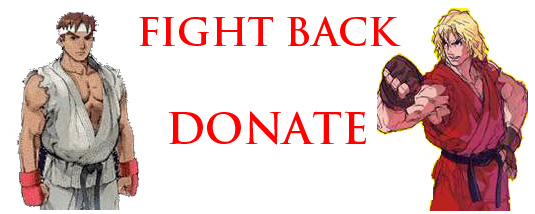
© All material Copyright 2007 by Bill Weintraub. All rights reserved.
PS
What's the difference between Publius Aelius Hadrianus, Imperator Romanum --
and George W Bush, President of the United States of America?
Both were extremely powerful men who occupied the highest profile political jobs of their day.
But can you imagine what would happen to George W Bush if he took a male lover?
Clearly, George W Bush is not as powerful as Hadrian.
And he's less therefore of a Man.
I'm sure he wouldn't agree.
But then, what choice does he have?
And that's just the point.
Hadrian had that choice.
You can have it too.
If you'll fight for it.
IF you'll FIGHT for it.
It will not be yours, without a fight.
Bill Weintraub
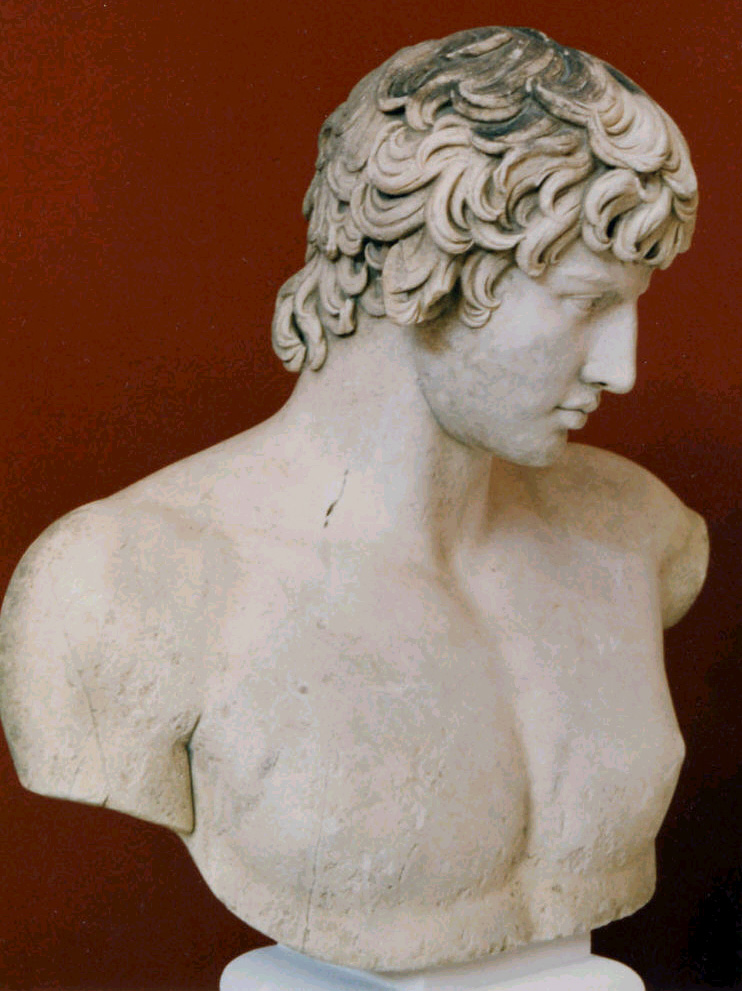



About this image:
The virtual museum site says that this statue represents Antinous as Dionysos.
The site may be correct about that, but it's a tad misleading, at least to those who think of Dionysos as a god of wine or drunken revelry.
Dionysos was a complex god with a complex history, and to understand this image, you need to understand that in Hadrian's era, Dionysos was a god of resurrection.
As a matter of fact, just as the Dioscuri were known as the Sons of God, Dionysos was known as the Son of God.
Not only because Zeus had fathered him, but because he was, like Mcduff, from his mother's womb untimely ripped, after which Zeus sewed him into his thigh, and carried him to term.
So Zeus not only impregnated Dionysos' mother, but also gave birth to him.
Thus -- the Son of God.
And there are those who argue -- among them my old friend Arthur Evans in his book The God of Ecstasy -- that elements of the Dionysos myth became incorporated into Christianity.
Be that as it may, there's no question that by the time of Hadrian, Dionysos was a god of resurrection.
And, says classicist Robert Graves, the springtime / resurrected Dionysos was, for the Romans, Mars -- the god of war.
Which makes sense, since very often ancient peoples went to war in the spring.
Graves quotes a Byzantine monk writing about ivy, a plant sacred to Dionysos, who notes that a red dye can be made from the stem.
Graves:
Red dye was used to colour the faces of male fertility images (Pausanias: ii, 2.5) and of sacred kings; at Rome this custom survived in the reddening of the triumphant general's face. The general represented the god Mars, who was a Spring-Dionysos before he specialized as the Roman God of War, and who gave his name to the month of March.
~ Graves, The Greek Myths, 27.12
I believe that what Graves is saying, coupled with Evans' observation that by the time of Vesuvius -- 79 AD -- a Dionysian mystery cult had become popular among upper-class Romans -- explains this image.
What we're seeing is Antinous resurrected as the Spring-Dionysos -- a virile god of war.
And that's why this image was so powerful to Hadrian.
Because this is how he imagined Antinous would be reborn.
I empathize with Hadrian on this point because after my own lover Brett died, I bought a copy of Rodin's Adam, which shows Adam rising slowly from the earth.
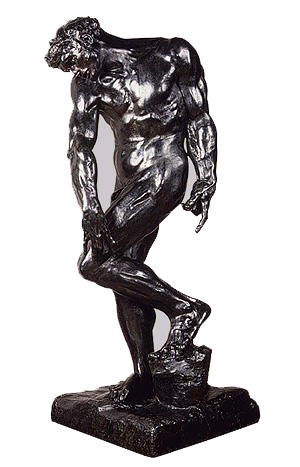
The image is one of resurrection -- as well as creation.
So it had a symbolic meaning.
And I think it's safe to say, that's what this statue and no doubt many of the others would have had for Hadrian.

No way around it -- the creation of these images was, ultimately, a moving and very human gesture by this most powerful of men.
Bill Weintraub



Re: The Deification of Antionous
8-24-2007
Bill, the straight guys who want man2man don't want intimacy. They are no different than the promiscuous gays who lust. Hence, straight and gay think the same way. They haven't grasped brotherhood/warriorhood. They indeed play heterosexism's script: they want to fuck around, which is deceptive and abusive because they're using another person.
Perhaps because the terms "brotherhood" and "warrior" have been silenced in men's lives. The married guy who claims to love his wife but have need for masculine rapport understands what his social identity has scripted for him. He understands deception: sneaking around to be with other men. He understands lust: screw anyone and don't establish a bond. He understands promiscuity. And they understand all this because they believe in the either/or straight/gay identification of men.
In other words, they believe in two types of men: real or straight and non-real or gay. They believe that real men aren't man2man, can't be; so the best way to maintain the facade of the masculine is to deceive and fool around in secret. They don't understand brotherhood or warriorhood. They don't appreciate the masculine. They really don't know the masculine.
Once again, that ignorance about what masculine is, what brotherhood is, is one of the reasons our work is so important.
Re:The Deification of Antinous
8-27-2007
Thank you Redd.
Another great post.
Let's take a look:
Bill, the straight guys who want man2man don't want intimacy. They are no different than the promiscuous gays who lust. Hence, straight and gay think the same way. They haven't grasped brotherhood/warriorhood. They indeed play heterosexism's script: they want to fuck around, which is deceptive and abusive because they're using another person.
Right.
Redd says, "the straight guys who want man2man don't want intimacy."
That's correct.
There's something more important and more powerful than sex, and that's intimacy.
When we look at some of the old photographs in an exhibit like Dear Friends --
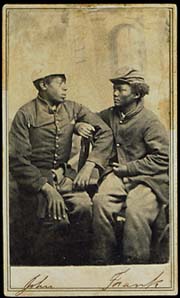
we can't know for certain whether these guys "had sex" with each other.
But we can be sure that they were intimate.
We can see it in their faces and their body language.
Intimacy.
A key component of friendship and of what Redd calls "Warriorhood," which is a communal sharing and exaltation of Manhood.
But and again, as Redd says,
the straight guys who want man2man don't want intimacy. They are no different than the promiscuous gays who lust. Hence, straight and gay think the same way. They haven't grasped brotherhood / warriorhood.
Neither the gay-identified nor the straight-identified guys "have grasped brotherhood / warriorhood."
Because in our heterosexualized society, that sort of male-male intimacy is both figuratively and literally BEYOND their grasp.
Society, in other words, not only no longer makes it possible for these men to grasp Warriorhood -- society makes it IMpossible.
The result: Both "categories" of men, which are both equally false,
indeed play heterosexism's script: they want to fuck around, which is deceptive and abusive because they're using another person.
Right.
Heterosexism's script, which Redd talked about in To see masculinity and masculine love as sacred, and which we discussed again in The myth of male promiscuity -- heterosexism's script imposes a false or social identity -- a pseudo-masculinity -- over and upon Man's Natural Masculinity.
That script requires that men eschew intimacy and love in favor of abuse and lust.
That's what the script is about.
It seeks to destroy the sacred bonds between men -- because those bonds threaten heterosexualization's societal control.
Which is why, as Redd says,
the terms "brotherhood" and "warrior" have been silenced in men's lives.
Those terms -- "brotherhood" and "warrior" -- which combined make up and constitute "Warriorhood" -- have to be silenced in order for the heterosexualized society -- to remain in power.
It's that simple.
Warriors, Brotherhood, and Warriorhood -- all threaten the heterosexualized order.
So they're denigrated, derided, censored, silenced -- extinguished.
Snuffed out.
Redd:
The married guy who claims to love his wife but have need for masculine rapport understands what his social identity has scripted for him.
Right.
He's learned his role well.
He understands deception: sneaking around to be with other men. He understands lust: screw anyone and don't establish a bond. He understands promiscuity. And they understand all this because they believe in the either/or straight/gay identification of men.
In other words, they believe in two types of men: real or straight and non-real or gay. They believe that real men aren't man2man, can't be; so the best way to maintain the facade of the masculine is to deceive and fool around in secret. They don't understand brotherhood or warriorhood. They don't appreciate the masculine. They really don't know the masculine.
Again, that's exactly right.
What these males know is what heterosexualization allows them to know:
the pseudo-masculine.
The pseudo-masculinity of promiscuity, of deceit, of empty sex and loveless lust.
What these males don't know, and will never know, unless and until they are liberated, is the Naturally Intimate Love of Man for Man.
Which is an outgrowth and outcome of the development of their NATURAL Masculinity.
Their true Masculinity.
Redd:
Once again, that ignorance about what masculine is, what brotherhood is, is one of the reasons our work is so important.
Yes.
Remember that Hadrian and Antinous were about brotherhood;
as were these guys we see in the tondo:

These were people involved in mystery religions, like Mithraism, which, through their emphasis on bravery, fidelity, manly devotion, and male fellowship, provided a great sense of brotherhood.
And Warriorhood.
Hadrian and Antinous were intimate.
In the truest sense.
An intimacy born of a love which was pure and strong.
Intimacy.
Redd began his post with these words:
"the straight guys who want man2man don't want intimacy" --
Right.
Because they've been told that "real men" aren't intimate -- emotionally close -- with other men.
But Men have had intimacy with other Men -- for millenia.
A few days back, in the reply I posted to Chuck Tarver's You can't tell a fish he's all wet!, I included some pictures from World War II.
These are pictures of male intimacy:
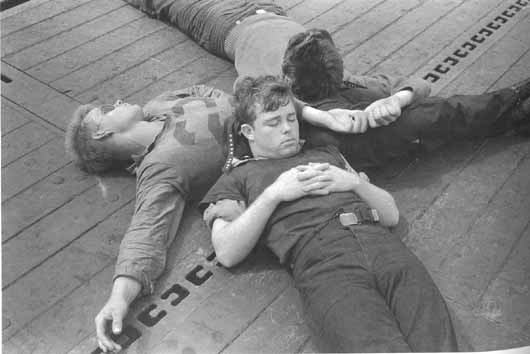
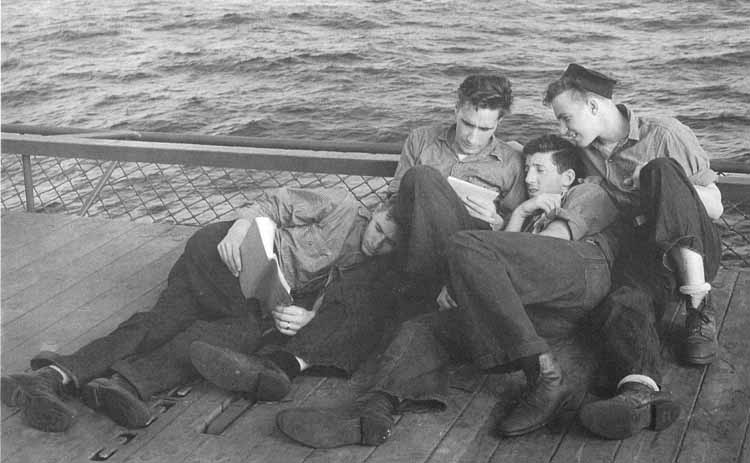
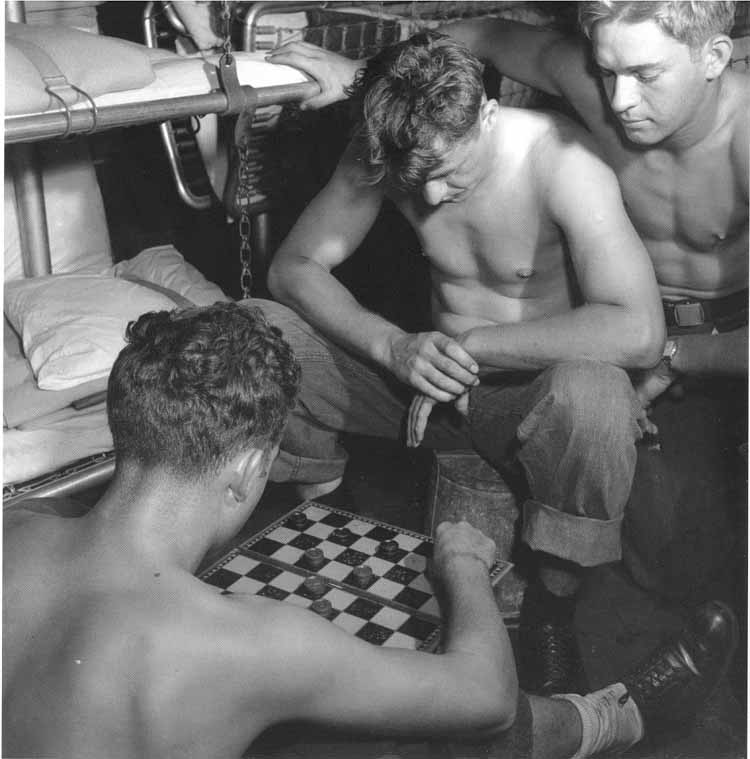
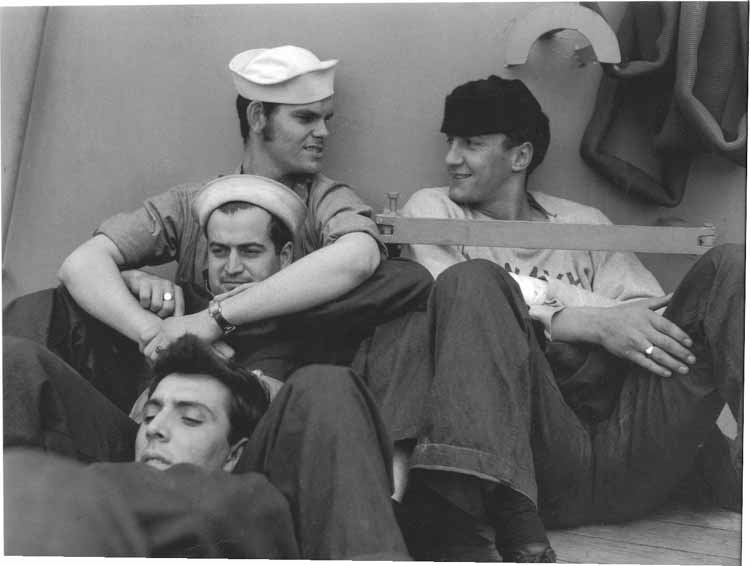
Those images are from World War II; but this sort of intimacy is not and was not unique to that war.
Here's an image from 1870:
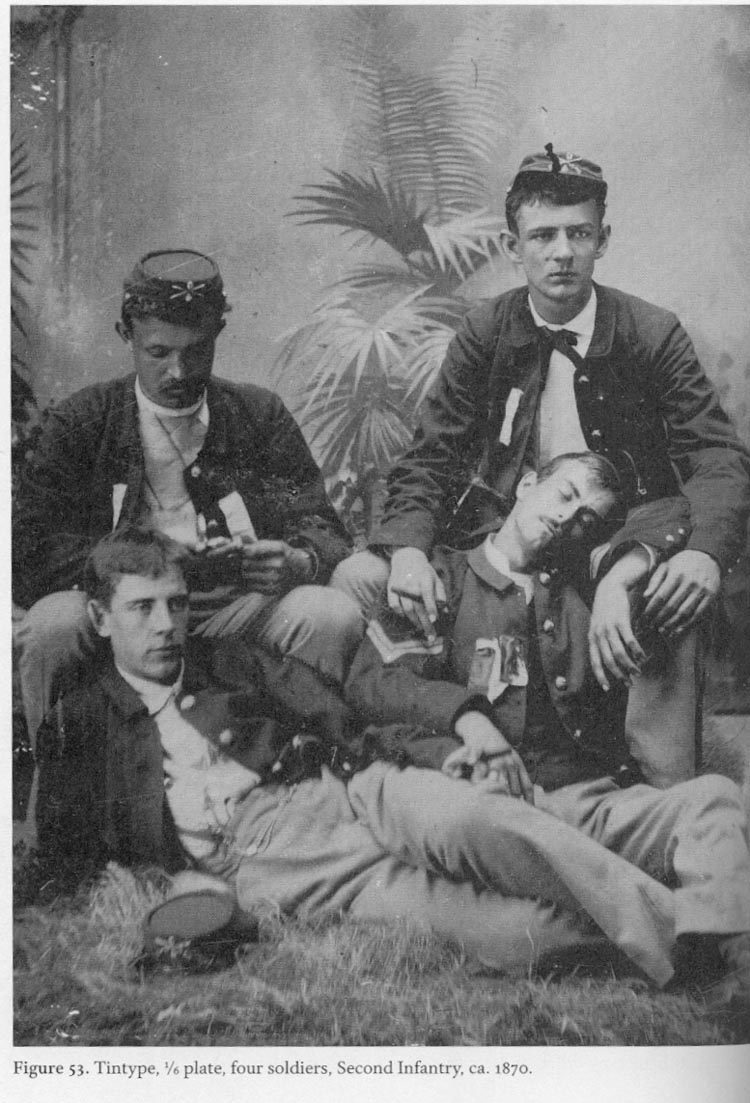
This image is from John Ibson's Picturing Men: A Century of Male Relationships in Everyday American Photography.
We first heard of this book through Redd, who posted about it in October 2006 in the message thread started by Tom and titled Bonds Among Soldiers, World War I.
And I now have a copy of the book, courtesy of Redd, to whom I'm very grateful, as I hope you all will be, because Professor Ibson's is a work of great scholarship.
And I say that having read only a couple chapters -- the book is heavily footnoted and not easy going.
But it's well worth the effort.
I suppose I should hedge my bets by saying that, having only read part of the book, it's unlikely that John Ibson and Bill Weintraub are going to agree on everything, particularly not in an area as fractious as the sexual culture wars.
But this is a good book, and Ibson has done the community of Men who Love Men a great and genuine service by collecting these photographs -- which run roughly from 1850 to 1950 -- and then so carefully researching them and their era and so thoughtfully thinking through what they mean.
Now, as Redd noted back in 2006, although Ibson, who's chair of the Department of American Studies at Cal State, Fullerton, doesn't use the term "heterosexualization," the process he describes is exactly that:
a change from a way of life which was characterized by single-gender / homosocial spaces and environments, to one in which mixed gender -- heterosexualized -- environments are common and the culturally-enforced norm.
This change was accompanied by the medicalization of "homosexuality," a term which was coined in 1869.
Speaking of this change, and the nineteenth century, Ibson quotes the French philosopher Michel Focault:
...as long as friendship [between men] was something important, was socially accepted, nobody realized men had sex together. The disappearance of friendship [and the elevation of marriage] as a social relation and the declaration of homosexuality as a social/political/medical problem are the same process.
Foucault was speaking in 1982, and I don't know that I agree with every word he said, since for one thing our understanding has changed and evolved since then.
For example, Foucault says, "nobody realized men had sex together."
That's not true.
As Ibson makes clear, the MEN KNEW they had sex together.
They were as aware of that as Men have ever been.
But what Foucault is saying is that the "disappearance" -- I would call it the DESTRUCTION -- of male friendship as a social relation plus the elevation of marriage "and the declaration of homosexuality as a social/political/medical problem are the same process."
And that's correct.
In other words, the DESTRUCTION of male friendship is part of "the same process" by which homosexuality is declared "a social/political/medical problem."
And at the same time, the destruction of male friendship "as a social relation" is accompanied by an elevation of heterosexual marriage.
And that's the vital insight -- no matter how you word it.
Once again, the point is that the destruction of MEN via the destruction of MALE INTIMACY -- and the creation of "homosexuality" -- are the same deal.
So, put differently, and as we've often said, prior to 1869, there were no "homosexuals," there were simply people and sex acts.
That changed, says Ibson,
in the late nineteenth century, as the words "heterosexual" and "homosexual" gradually entered the language[, and] opprobrium shifted from an activity itself to persons thought to be oriented toward such behavior.[emphases mine throughout]
He then quotes historians John D'Emilio and Estelle Freedman, who say,
Same-sex relationships thus lost the innocence they had enjoyed during most of the nineteenth century [once] medical labeling of same-sex intimacy as perverse conflated an entire range of relationships and stigmatized all of them as a single, sexually deviant personal identity.
So -- as my foreign friend has said, the creation of the false categories of "sexual orientation" doomed male-male intimacy, mutilating and negativising it and shunting its sexual expression into the "gay" ghetto.
To make his case, Professor Ibson has collected, through flea markets and swap meets and eBay auctions, a large number of nineteenth and early twentieth century studio photographs of American men.
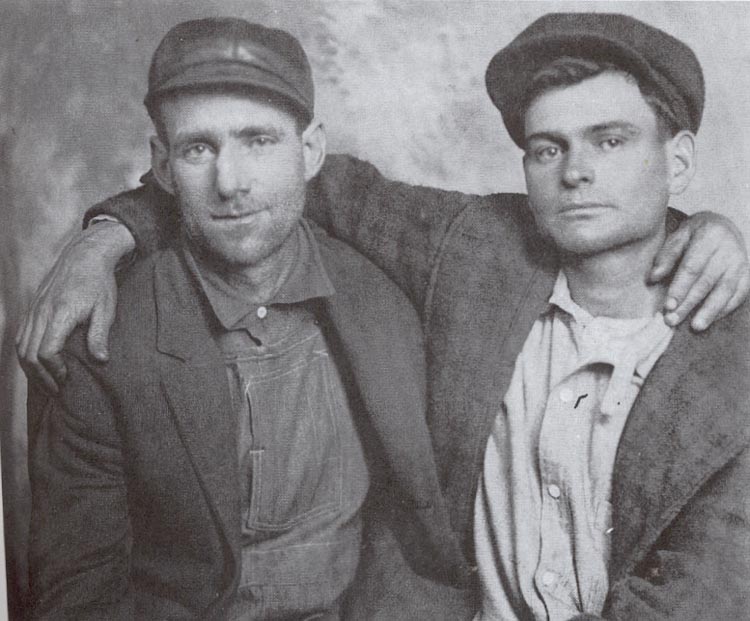
What one sees in these pictures -- men holding hands, men sitting in each other's laps, men with their arms about each other, men physically and emotionally intertwined in a number of other very striking ways -- is very powerful, and made more so by Ibson's amply documented observation that
professional portraits of men together in the late nineteenth century were often taken by someone well known to the sitters, in a studio in the center of their town, with their neighbors in the waiting room. That so many American men were comfortable enough in this environment to pose the way they did is highly revealing.
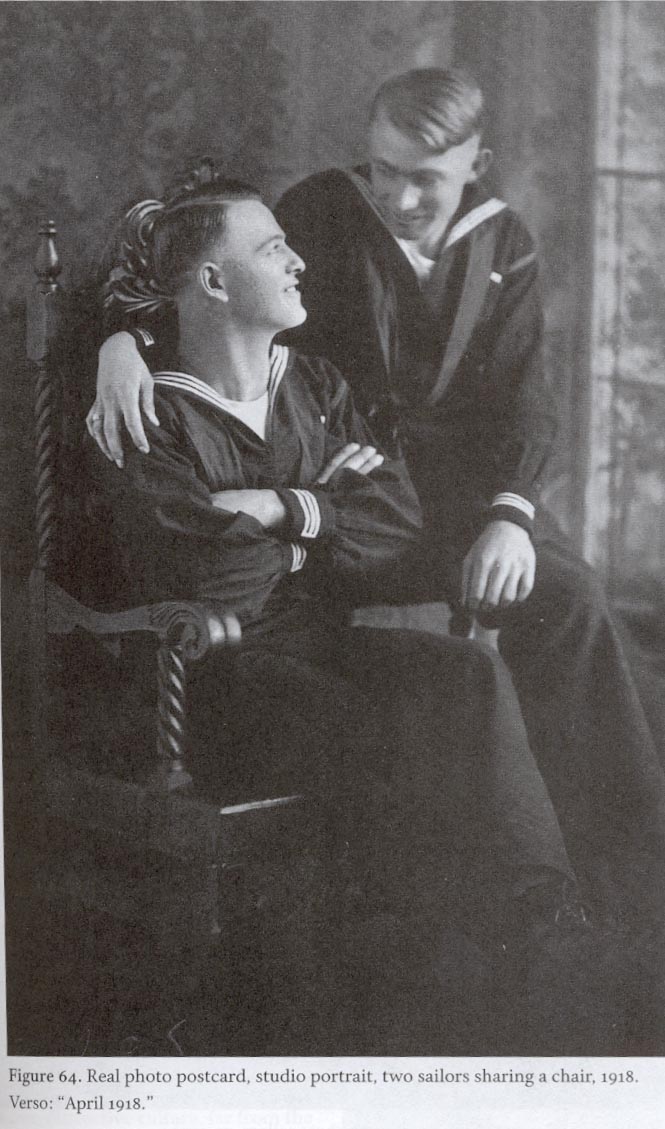
"Highly revealing," says Professor Ibson.
No kidding.
The caption says that this was a "photo postcard," which means it was meant to be sent through the mail.
That's revealing.
And that's not all that's revealing.
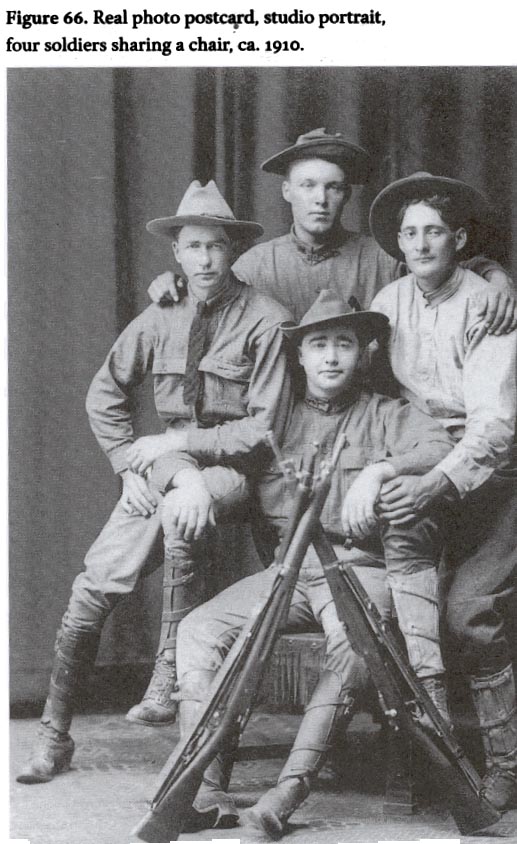
Because Ibson produces a startling statistic:
That in the late nineteenth century, more than 40 percent of all men over the age of fifteen -- were not married.
A bachelor subculture, with enclaves of singleness flourishing in street-corner gangs, boardingschools, the YMCA, rooming houses, colleges, the workplace, lodges, saloons, pool halls, and sporting events, was another manifestation of gender segregation, of particular importance in the late nineteenth century when bachelors were so numerous -- more than 40 percent of all men over the age of fifteen in the United States. Recent research has shown that the large number of single men was not linked to a shortage of marriageable women or to economic uncertainties as much as to the fact that many men simply preferred bachelorhood.
40 percent -- what a statistic!
And in a footnote, Professor Ibson tells us how the figures shifted as what we call heterosexualization proceeded apace:
Of American men fifteen and older, 42 percent were bachelors in 1890, 33 percent in 1940, and only 25 percent in 1950.
That is heterosexualization, and it's not a figment of anyone's imagination -- it's right there in the stats.
MEN didn't change -- the culture changed.
I know this from my own family.
My father, who was born in 1901, was the only child in his family of three sons and one daughter to marry, and he married comparatively late in life -- when he was forty.
That is to say, in 1941.
Which means that when he was born, easily 40% of men were bachelors.
By 1940, only 33% were -- and he joined the trend, and got married too.
But not all the men in his cohort did.
His brothers never married, and he had friends -- contemporaries -- who never married either.
None of these men were, in my boyhood, considered "gay."
They were simply referred to as "confirmed bachelors" -- and nothing else was said.
Now what about INTIMACY?
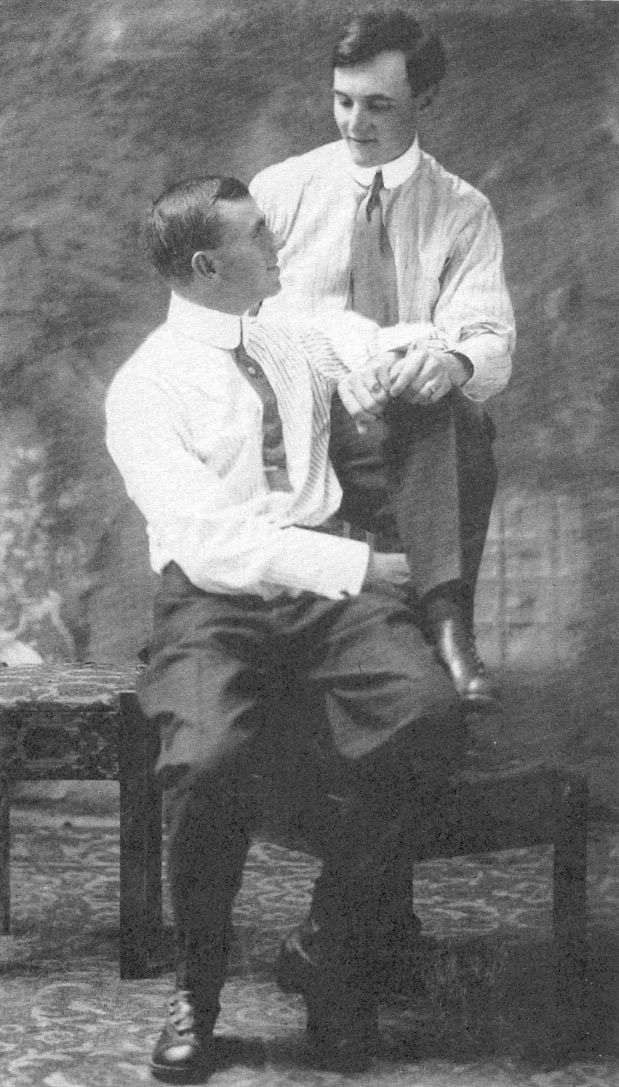
[Caption:] Figure 29. Real photo postcard, studio portrait, two men holding hands ca 1910. Verso: "I don't know if I sent you one like this or not but it wont hurt to send you another if I did. myself and Kent."
Dr. Ibson has looked at the photographic evidence:
When it comes to nineteenth century photographs, clearly more emotional bliss was displayed in those of men together than in those of men and women. Though surely some of that bliss was erotically inspired, what is most notable and unequivocal in the portraits of two or more men is simply the comfort of male association.
"the comfort of male association" -- the ease of male intimacy.
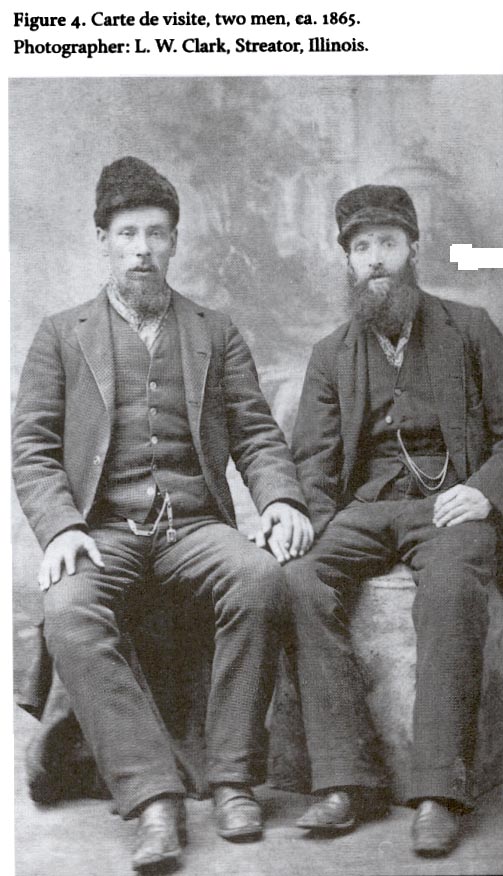
And that's one of the things which is so striking about the photographs Ibson has collected.
In male same-sex photographs today, what you most often see is lasciviousness and lust.
Which of course is a reflection of analist culture.
What you see by contrast in the vintage photos is playfulness, good fellowship, tenderness and male intimacy.
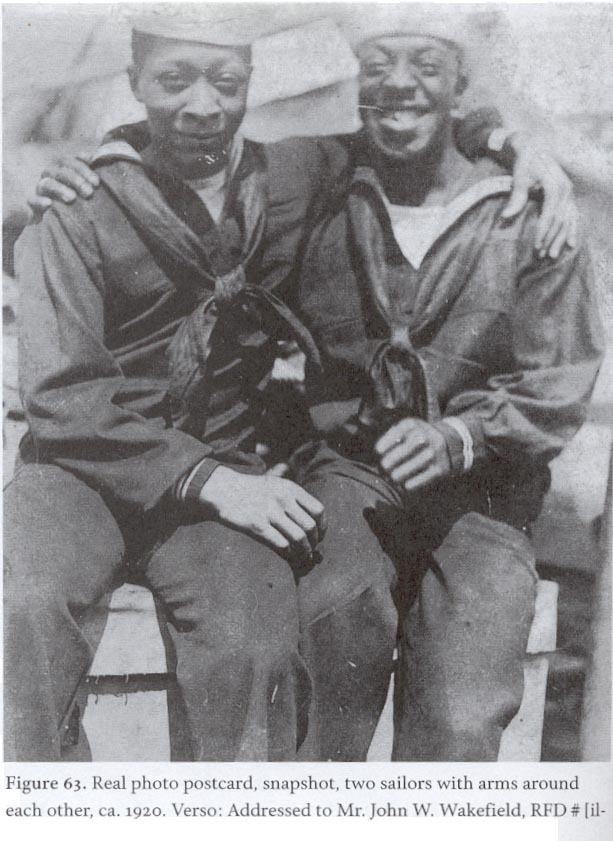
Quite a contrast.
And speaking of male intimacy, having told us about the "street-corner gangs, boardingschools, the YMCA, rooming houses, colleges, the workplace, lodges, saloons, pool halls, and sporting events" -- all of which were predominantly all-male or homosocial spaces -- Professor Ibson then discusses the American West:
The largely all-male communities of miners and cowboys in the nineteenth-century West were also influenced by and were fertile ground for the cultural endorsement of men's love for each other. In his popular 1922 novel Ted, Clarence Mulford (author of the Hopalong Cassidy series) wrote of dancing miners: "A roar of laughter came from the celebrating miners and all turned their way. Sinful and Hank were dancing to the music of the jew's harp and the time set by stomping hob-nailed boots. They parted, bowed, joined again, parted, curtsied, and went on, hand in hand, turning and ducking, backing and filing, the dust flying and the perspiration streaming down."And cowboy Badger Clark's somewhat earlier poem, "The Lost Pardner," was hardly inhibited in dealing with a friend's death:
We loved each other in the way men do
And never spoke about it, Al and me.
But we both knowed, and knowin' it so true
Was more than any woman's kiss could be ...The range is empty and the trails are blind,
And I don't seem but half myself today.
I wait to hear him ridin' up behind
And feel his knee rub mine the same old way.He's dead -- and what that means no man kin tell.
Some call it "gone before."
Where? I don't know, but God! I know so well
That he ain't here no more!
That's a lament for a lost male intimacy which is as old as Gilgamesh, as old as the Iliad, as old as the Thebaid -- and a lot older.
It's as old as Mankind.
John Ibson:
What John Donald Gustav-Wrathall has written about the YMCA may apply to many areas of American life in the late nineteenth and early twentieth centuries. Arguing that "the primary force behind the creation of the Young Men's Christian Association in North America was that young men simply liked being together," Gustav-Wrathall has said that "in focusing on the intense nature of the bonding, I am not suggesting that the YMCA was a homosexual organization. I am suggesting that homoeroticism and intense homosocial bonds are a more important part of male culture than has previously been imagined."[emphases mine]
To which I once again say, No kidding.
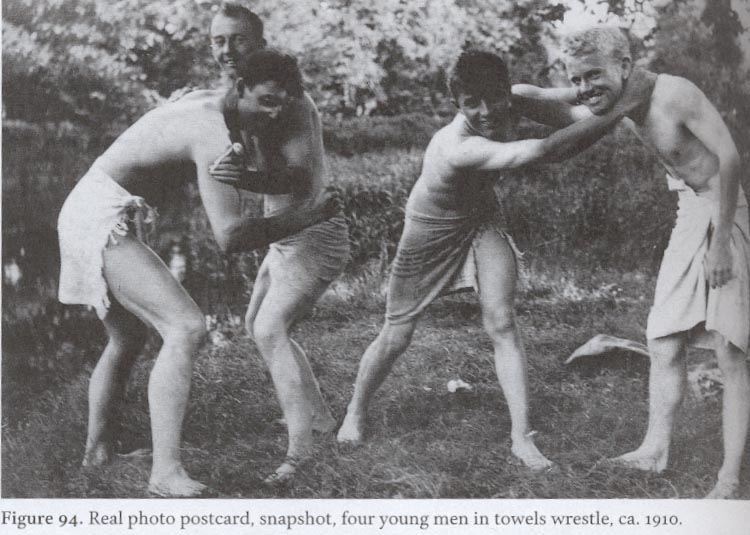
Mr Gustav-Wrathall says that "young men simply [like] being together";
and adds, "homoeroticism and intense homosocial bonds are a more important part of male culture than has previously been imagined."
But that begs the question: imagined by whom?
By twentieth-century academics, cowed by homophobia and MAN-phobia?
Sure.
But that young men like being together and that "homoeroticism and intense homosocial bonds" are important not just to male culture and MEN but to all of society -- would hardly have been a surprise to the Sumerians or the Greeks or the Romans or the Celts or the Samurai etc etc -- the list is basically infinite.
The people who are startled by that idea are the sickly male denizens of our heterosexualized present -- not the true and NATURALLY MASCULINE MEN of our WARRIOR past.
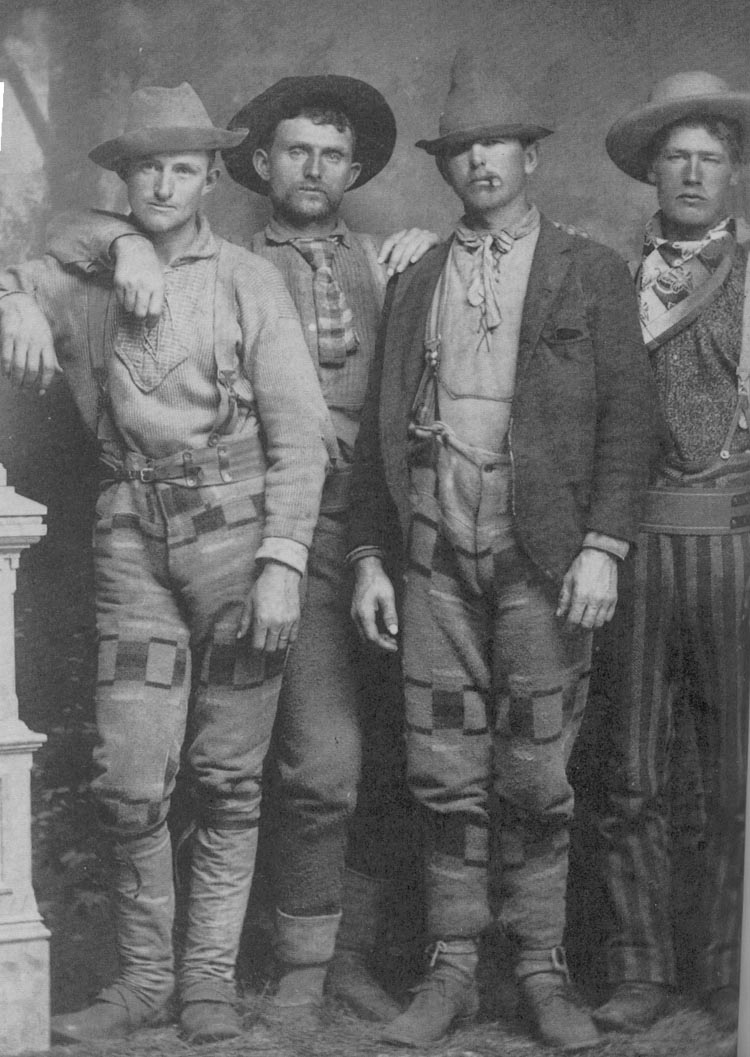
So:
The sort of intimacy between Men you see in the photographs from World War II was not and is not unique to World War II.
But -- there's no question that war, as I think Ibson agrees -- he titles his chapter about World War II "Men Set Free" -- promotes a very deep and profound intimacy between Men.
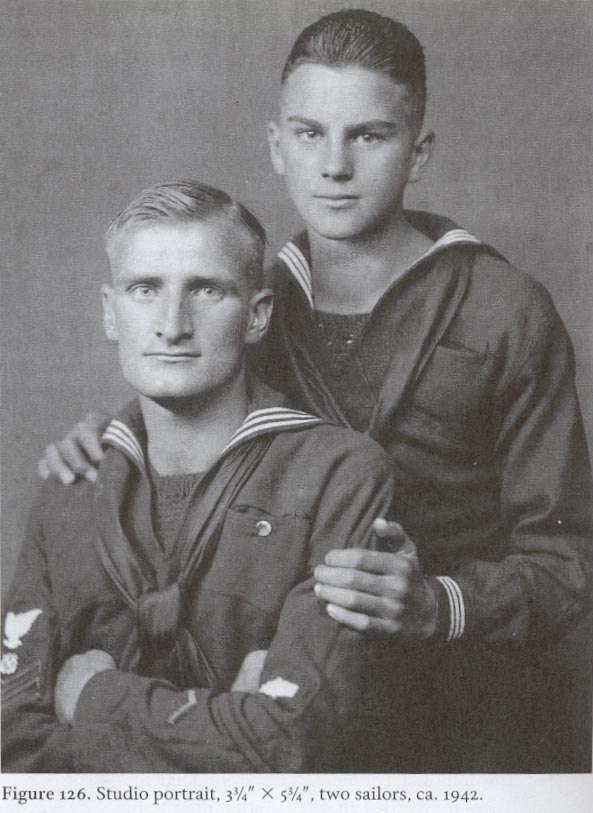
INTIMACY is a part -- and indeed a crucial part -- of the dynamic created by Men at War:
Warriors.
Why am I stressing this?
Because Warriors are what most Men have been most of the time throughout most of the existence of the human race.
Which means that male intimacy is not incidental to Men.
It's crucial.
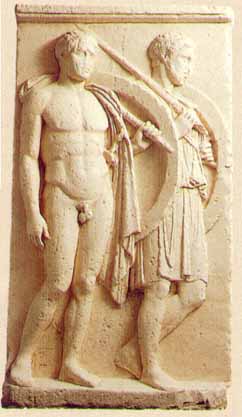
But men today don't understand that.
Redd:
They don't understand brotherhood or warriorhood. They don't appreciate the masculine. They really don't know the masculine.
Once again, that ignorance about what masculine is, what brotherhood is, is one of the reasons our work is so important.
Right.
Men "really don't know the masculine."
And you have to ask: How can Men live -- if they don't know the masculine, are ignorant about what masculine is, what brotherhood is?
The answer is -- they can't.
Their existence is a subsistence.
They don't thrive.
Which is why, as Redd says, our work matters.
Thank you Redd.
You're a true Warrior.
And again I thank Redd and I hope you all will for introducing John Ibson's work to the Alliance.
Guys, if you're interested in purchasing Ibson's book, you can find it on amazon.
Or, here are the ISBN numbers:
ISBN-10: 0226368580
ISBN-13: 978-0226368580
Or you can just request a copy at your local library.
There are more than 140 photographs in the book -- you owe it to yourself to see those pix and really begin to understand how much has been lost --
and how much could be gained.
Bill Weintraub
August 27, 2007

© All material Copyright 2007 by Bill Weintraub. All rights reserved.
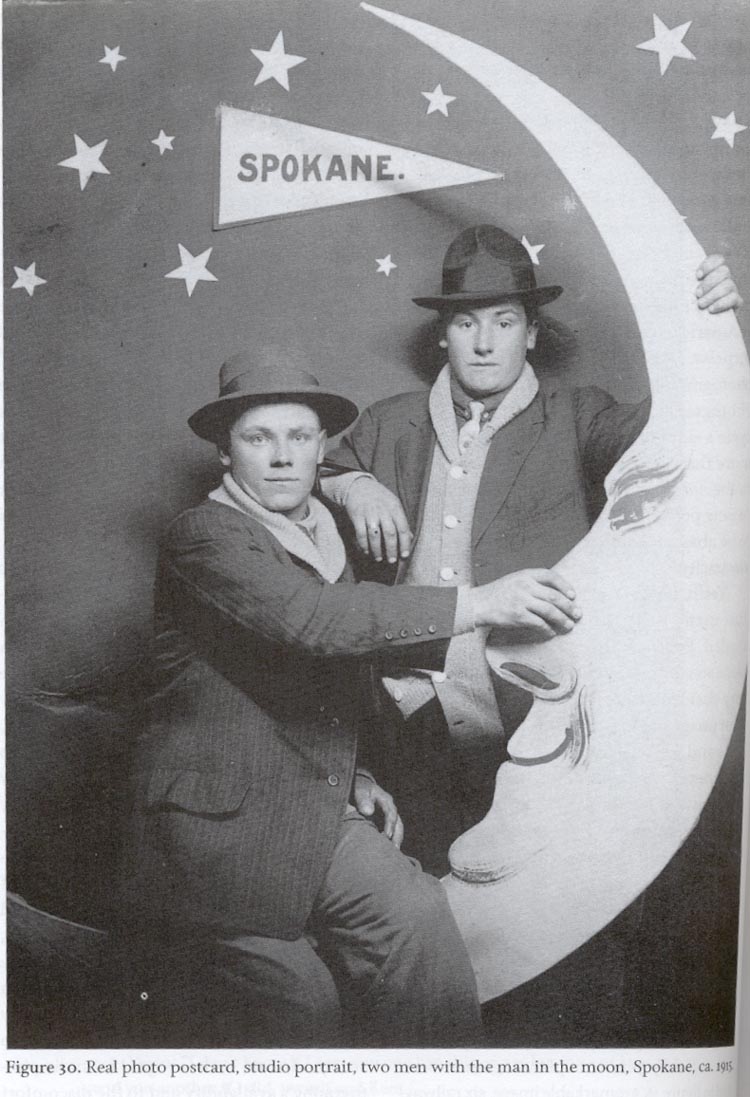
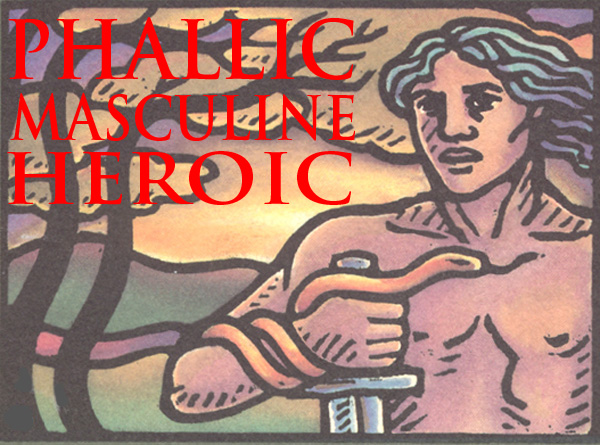



AND


Warriors Speak is presented by The Man2Man Alliance, an organization of men into Frot
To learn more about Frot, ck out What's Hot About Frot
Or visit our FAQs page.

| Heroes Site Guide | Toward a New Concept of M2M | What Sex Is |In Search of an Heroic Friend | Masculinity and Spirit |
| Jocks and Cocks | Gilgamesh | The Greeks | Hoplites! | The Warrior Bond | Nude Combat | Phallic, Masculine, Heroic | Reading |
| Heroic Homosex Home | Cockrub Warriors Home | Heroes Home | Story of Bill and Brett Home | Frot Club Home |
| Definitions | FAQs | Join Us | Contact Us | Tell Your Story |

© All material on this site Copyright 2001 - 2010 by Bill Weintraub. All rights reserved.
